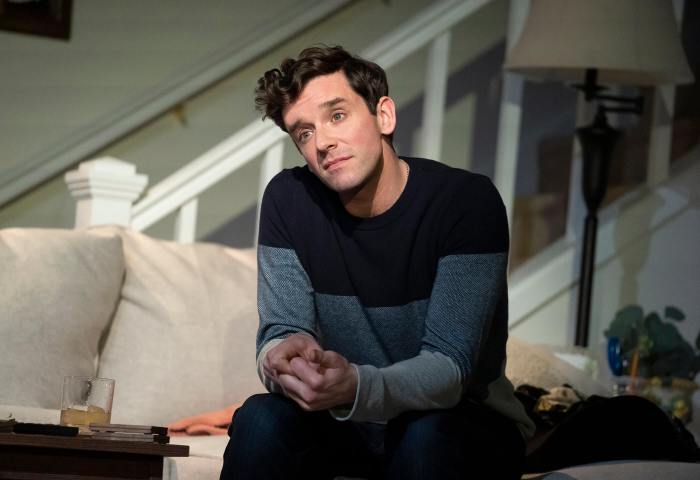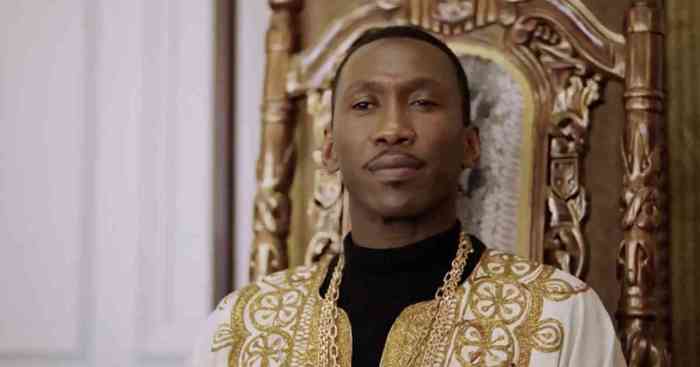Well timed for Black History Month, “Smart People” is the latest play by Lydia R. Diamond (“Stick Fly”) to explore the politics of race. Set against the backdrop of Barack Obama’s historic presidential election in 2008, this barbed comedy of manners features four exceedingly brainy characters from a range of racial backgrounds. They reside in Cambridge, Massachusetts, naturally.
There’s Brian, a smug white neuropsychiatry professor at Harvard who yearns to win a Genius Grant, and Ginny, a Chinese-Japanese-American psychology professor specializing in racial identity. We also meet Valerie, an ambitious African-American actor with an MFA from Harvard, and Jackson, an overworked surgical intern on rotation at Harvard Medical School who is also African-American.
Yet the titular “smart” should be in quotation marks. Despite fancy degrees, these people are all fairly dopey when it comes to navigating racial divides and interpersonal relationships.
Harvard intellectuals mired in a swamp of racial and sexual politics
This highly intelligent, absorbing work does a superb job of probing thorny issues surrounding racial stereotypes and our futile efforts to shatter them. Helmed by Kenny Leon (he also directed “Stick Fly”), the play features rapid-fire dialogue and overlapping scenes, which serve to ramp up the turmoil even further.
Brian is conducting a bold, groundbreaking study measuring neurological responses in white people when exposed to blacks. “I want to prove that all whites are racist,” he says, with no hint of discomfort. “We are programmed to distrust and fear those with more melanin.”
Not surprisingly, many are outraged over his research, fearing that “the mingling of science and race could prove damaging.” Once the results begin to support his thesis, the university threatens to cut his funding.
Diamond grounds the comic drama in harsh emotional truths, setting up dicey, racially charged situations, though some feel a tad contrived. In this world, as in our own, racism is colorblind — people can be racist even against their own people.
When Valerie first meets Jackson in a hospital emergency room (she got a nasty gash on her forehead from bumping into an errant nail backstage), she assumes he’s an orderly, not a physician — because he is black. Jackson assumes her wound was the result of a beating — because she is black. To help pay the rent, Valerie cleans houses between acting gigs. Such a menial occupation is seen as a step backwards, a discredit to her race, by pretty much everybody — except her.
After Brian kicks Jackson’s ass in basketball, he boasts, “See, white man can jump! You can’t channel years of oppression and beat one middle-aged white guy?” Turns out Jackson let him win.
The most disturbing example is when Ginny, during a sort of sexual revenge game with Brian, plays the role of a subservient geisha girl in bed. Brian’s reaction is at once shocking and inevitable.
Each character is richly drawn. A clean-shaven Joshua Jackson (currently starring in “The Affair,” though best known for “Dawson’s Creek”) is both arrogant and charming as Brian, the misguided “white male patriarchal asshole” professor. Mahershala Ali plays Jackson with a brooding belligerence that beautifully articulates the frustration of a black man misunderstood and exploited by white power-mongers.
Tessa Thompson nicely captures Valerie’s defiance and insecurity as she attempts to make a go of her acting career and strike up a romance with Jackson. The strongest turn is delivered by Anne Son, whose Ginny accepts she will always be labeled either a shy Asian or a driven bitch, and is indignant when the conversation about race is only about blacks and whites.
Not that the production couldn’t use some tweaks. I’m not sure the heavy-handed projected images of racially diverse folks — obviously stock photos — are necessary. Brian’s last name is White, which is simply too precious for such an otherwise savvy drama. And while I’m sure plenty of “Dawson’s Creek” fans will be thrilled to see Joshua Jackson naked in a locker room (albeit very briefly), it feels gratuitous.
For all the probing of racial stereotypes and questioning whether racism is ingrained or learned, “Smart People” wisely refuses to offer up definitive answers. Perhaps Ginny sums it up best when counseling a patient distraught about her own Asian heritage: “Identity is tricky.”
SMART PEOPLE | Second Stage Theatre, 305 W. 43rd St. | Through Mar. 6: Tue.-Thu. at 7 p.m.; Fri.-Sat. at 8 p.m.; Sat. at 2 p.m., Sun. at 3 p.m. | $79-$125 at 2ST.com | Two hrs., 15 mins., with intermission


































